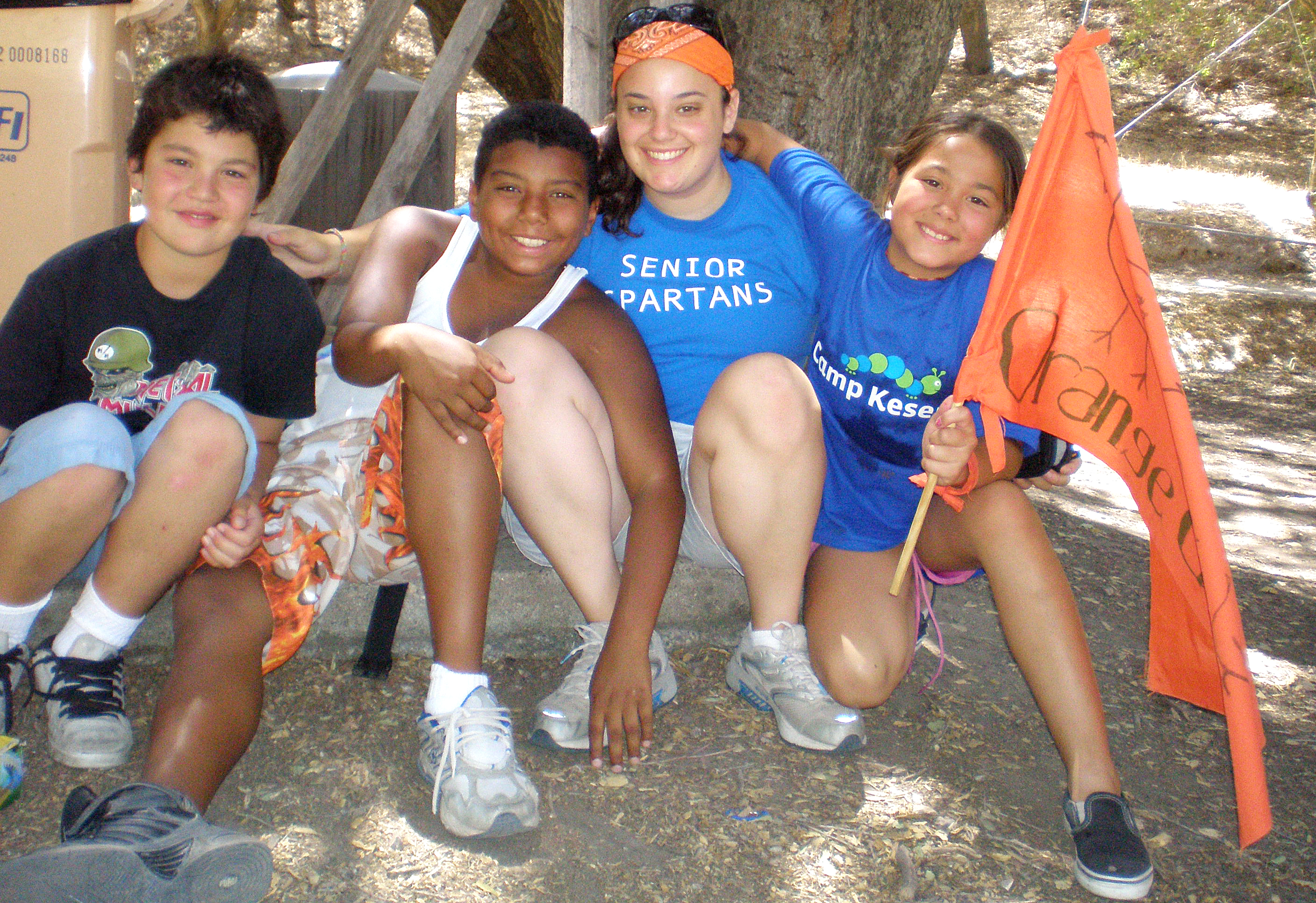Fourth-year world arts and cultures student Kristin Killacky recalls a moment during her summer volunteering experience when she sat in silence out in the openness of the Los Padres National Forest with a 12-year-old girl.
“We didn’t say any words or anything, we just sat there. Her head was on my shoulder, and I could feel her tears running down my arm,” Killacky said.
This occurred during an event called “Parent Memorial,” in which participants chose objects in nature to represent their parents who had passed away from cancer. This young girl was one of about 90 campers at Camp Kesem, a one-week overnight summer camp for children from Los Angeles who are 6-13 years old and who have or have had a parent suffering from cancer.
The word “kesem” is Hebrew for “magic,” and the camp aims to bring a bit of magic and excitement into the lives of kids who have parents with cancer, an often overlooked population, said Annie Berenberg, co-chair of Camp Kesem at UCLA and a fourth-year English student.
Camp Kesem, which began in 2000 by the Stanford University Jewish student group “Hillel,” was brought to UCLA in 2004, Berenberg said. The camp now has 46 staff members and is a secular camp that accepts people of all financial situations.
Although the main goal is to create a fun social setting for these kids, Berenberg said that the summer experience allows the college volunteers to channel their passions and make a difference while developing leadership.
For Berenberg, who has volunteered the past three summers at Camp Kesem, this annual experience is especially important to her because her mom is a breast cancer survivor.
During the week, the UCLA volunteers jam-pack the schedule with events that allow the campers to let loose and be kids. Arts and crafts, drama, sports, nature hikes, and grooving to music are just some of the activities the volunteers put on for the kids.
“It’s a kind of recreational therapy for them,” Berenberg said.
The camp counselors and the committee try to prepare for every event possible during a yearlong planning process.
This includes scheduling, recruitment of counselors and campers, and raising an estimated $60,000 for their annual budget through grants and sponsored banquets, Berenberg said.
However, sometimes things are out of their control, especially when dealing with kids and the forces of nature.
Fourth-year communication studies student Mai-Lan Pham, the co-chair along with Berenberg, specifically remembers an unexpected incident with a certain 5-year-old who had a bit of bowel trouble.
“Kids at (this) age usually have problems wetting the bed, but this one child had a problem with pooping her pants. The second time it happened, she didn’t tell anyone and was walking kind of funny.”
Pham said she recalled this experience, not only because it was a new and unique situation, but because it reminded her that these young kids who still cannot fully control their bodily functions have to somehow learn to mature and control their own emotions about their difficult situation.
This maturity was most evident during their nightly cabin chat, in which this particular camper and her fellow camping mates had the opportunity to share with each other their personal experiences of having a parent with cancer.
“It’s amazing because even if you have campers with silly moments, at night during cabin chat, they grow up very fast,” Pham said.
For Berenberg, it is experiences like these that make her feel her summer was well spent.
“As camp counselor, it is the best thing I did at UCLA. It’s inspiring to see a kid give another kid a tissue when they need it,” Berenberg said.
